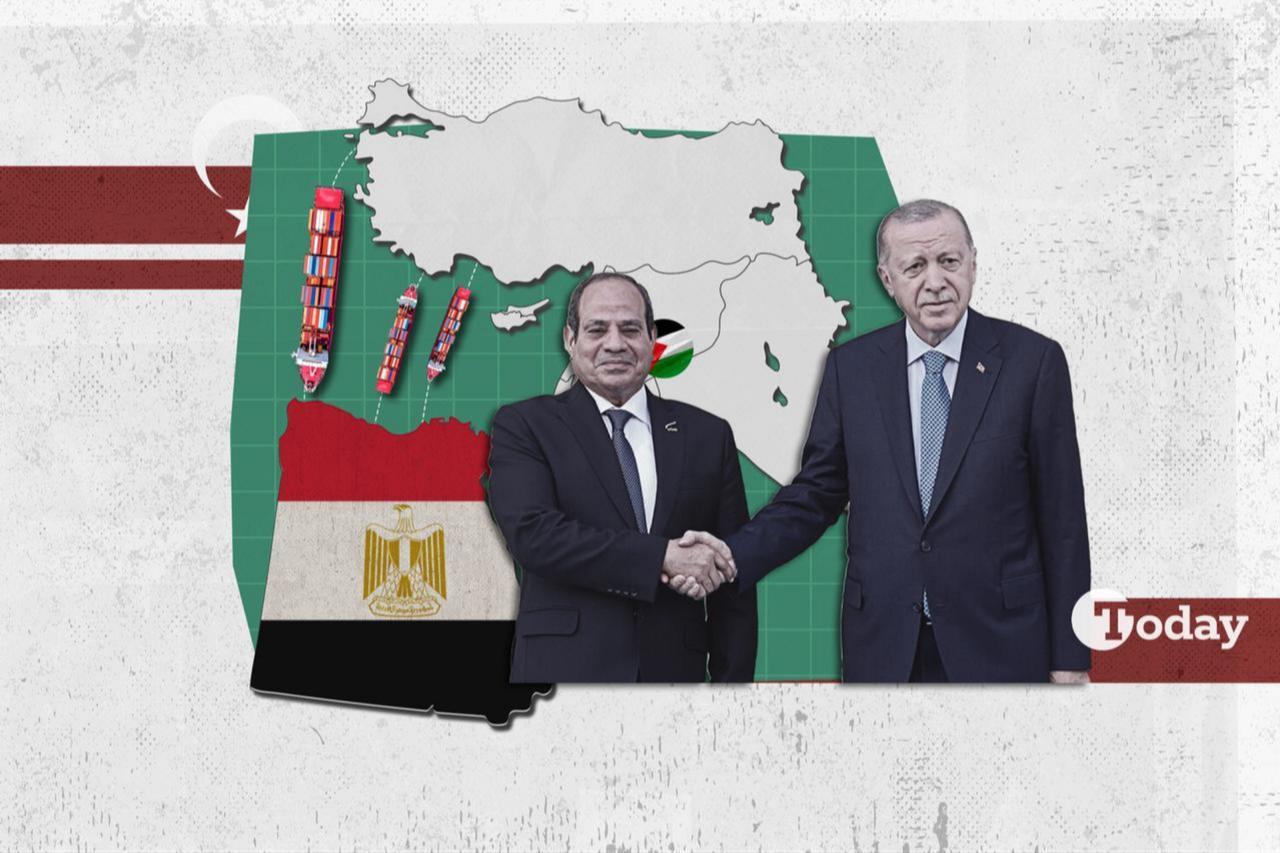
This article was originally written for Türkiye Today’s weekly newsletter, Saturday's Wrap-up, in its November 15 issue. Please make sure you are subscribed to the newsletter by clicking here.
I visited Egypt this week, my third trip in 2025. After a week of in-depth conversations with Turkish and Egyptian experts, diplomats, and journalists, I feel I can humbly portray almost a fair picture of where relations stand.
Two pious, and developmentalist leaders, who surprisingly grew closer with each meeting after their first handshake in Qatar in November 2022, did not have an easy start after Sisi took power in 2013 through a military coup. Türkiye’s approach to foreign policy was more ideological then, and for the first time in the republic's history, it collectively tried to project power in countries beyond its immediate neighbors. It resulted in uneasy outcomes, to say the least.
In 2018, Turkish and Egyptian intelligence agencies started holding low-level meetings with the hope and intention of exploring better areas of cooperation without focusing on the challenges ahead. The hardest part, however, was to convince the leaders to pivot, and the Turkish side was quite difficult as Egypt's post-coup story was often used in domestic politics. Erdogan's persuaders were his long-time confidants who saw a positive side in such an initiative. It was under then intelligence head Hakan Fidan's tenure that Turkish intelligence started to play consequential roles in Türkiye's foreign policy.
When Erdogan visited Egypt in early 2024, Sisi welcomed him at the airport waiting in front of the Turkish presidential plane with a smiling face. It was an easier pivot for him, his public already sympathizes with Türkiye as a model Muslim nation. This was despite some of the Turkish president's political allies feeling heartbroken to see his deepening personal ties with Sisi, a man he publicly denounced and used sharp language for so many times after 2013.

Let's address the bromance issue. Erdogan and Sisi are on the way to build deeper ties. It may not be in the form of a military pact against common threats as some may speculate, but Sisi and Erdogan meetings are revealing that the two are very similar minded, both pious, developmentalist, pragmatic, and survivors in challenging political climates.
Their stories are totally different, Erdogan simply despises what Sisi represented in 2013 as a general who overtook Egypt's first civilian government, similar to certain episodes in Turkish history. One Sisi supporter that I spoke with at a family gathering in Cairo said he sees Sisi as a very forward-looking leader who delivers massive infrastructure projects and provides Egyptians with security and stability as a former general in a very challenging neighborhood.
After Oct. 7, Israel's attacks played a catalyst role in deepening Egypt-Türkiye relations. Israel made every dictator and autocrat look like angels in the Middle East as their baby-killing offenses with no remorse are unprecedented in the last decades. Both men see the threat of an uncontrolled force led by a far-right, Jewish-supremacist government which seemingly saw Oct. 7 as an opportunity to attack and expand. The strongest promise both men deliver to their public is the stability, and border security, and Israel is an actor that can disrupt this.
Apart from the geopolitics, there are plenty of opportunities for Turkish businesses in Egypt. Cheap land, manpower, energy and cotton in Egypt have lured Turkish businesses to invest and expand. How logical it is for Egypt to pursue growth relying on construction, tourism, and textile is a topic for another discussion. However, Turkish businesses are happy benefiting from lucrative business opportunities. Separately, Türkiye had the highest number of companies represented in Egypt's EDEX defense fair in 2024. This is impressive as both countries did not have ambassadors just a few years ago. Don’t be surprised if ties deepen further with new military deals.